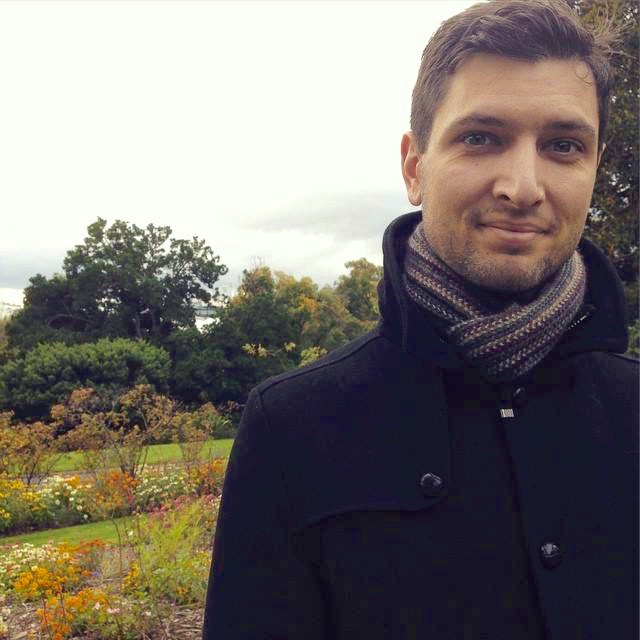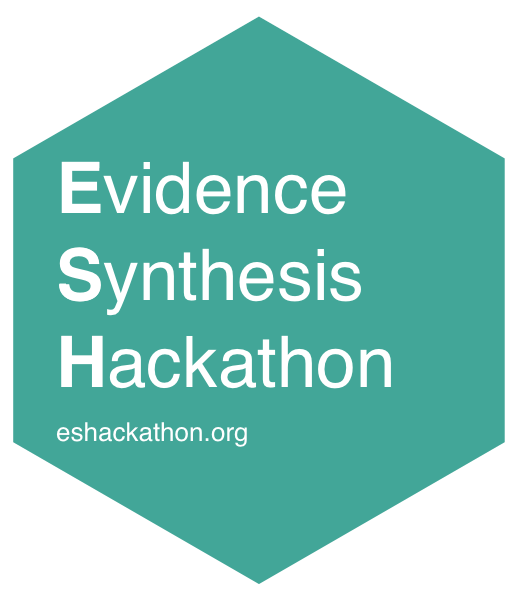Reflections on ESH Canberra 2019
An interview with Martin Westgate
What was your motivation for running a second major hackathon in 2019?
Our first ESH event in Stockholm was amazing, but it also helped us to realise a few things. Perhaps our most important realisation was that – while the software development that took place was amazing – our real output was the network of researchers and coders from different countries and disciplines that we helped build. If we want to support that sort of expansion of professional networks we realised we needed to run this event again, and preferably as a recurring series of events rather than a one-off. We also learnt heaps at the first hackathon about what the key questions were and how they needed to be addressed, and found that three days wasn’t enough time to solve all those problems. For example, at ESH2018 we wanted to chart an ‘ideal’ workflow for doing a systematic review in R, but we realised that this was difficult without some effort to link all the relevant packages together, which required a team of coders. This second event really allowed us to consolidate on those learnings.
Why did you choose to host ESH2019 in Canberra?
Well I live in Canberra, and Neal lives in Stockholm, so there is an argument that it was my turn to be the host! But seriously, Canberra is a great location for this event. Relative to the major cities in Australia it’s fairly central, so travel times aren’t too bad, plus it’s grown into a really fun place in the last five years or so with new bars and restaurants. More importantly, there are four universities in Canberra and it’s home of the public service, so there are strong ties here between research and organisations with a remit to solve real problems in an evidence-based way.
What were you trying to achieve at ESH2019?
We had a number of goals here.
First was to support development of the next generation of evidence synthesis specialists. We made a strong effort through our bursary program to support early career researchers to attend the event, and to give them the opportunity to work directly with leaders in the field. Obviously this required that those leaders were present, so we were really thrilled that so many luminaries were able to come and speak and participate in discussions at this event.
Second was to drive a broader discussion of what evidence synthesis is, and what it should be. This meant bringing in speakers and researchers from the Cochrane and Campbell collaborations as well as environment, which was our own disciplinary background. This is important because different disciplines have different mindsets, face different problems, but also have a series of insights and solutions that we could all learn from. We were very keen to ensure that researchers could mix with people from different backgrounds and generate new insights through collaboration.
Third, we realised that there was a risk with focussing solely on software that we would end up recreating existing tools, or solving old problems rather than those that researchers will face next week, next year, or a decade from now. This required a sidebar into discussion about potential futures. It requires a lot of knowledge, creativity and even bravery to discuss emerging trends in a group of people you don’t know, but our attendees were amazing in how they jumped at that challenge, to great effect.
Was ESH2019 successful?
Yes, it really was! We’ve already made progress on two new scientific papers that we think will really help others to move towards a future where new research is more accessible and easier to integrate than ever before. I think this is critical if our research is to drive the sorts of benefits to society that we want in medicine, policy, and environment.
We also had enormous creative outputs in software this year, split into two broad themes. Some people were really ‘thinking big’ and generated genuinely novel solutions to existing problems, like how best to track grey literature searches during systematic reviews, or how to identify potential keywords for literature searches. But other groups made amazing progress on tools to link and consolidate existing software tools. In this category the integrating data project is really one to watch, as is the metaverse project, which groups and integrates R packages for evidence synthesis.
Most importantly, ESH2019 was a really effective networking exercise, with 41 researchers travelling from 6 countries to collaborate on 10 different projects; a remarkable achievement. Of course, this high degree of success was only possible because we were supported by some amazing institutions; the University of New South Wales hosted and funded this event, but the Australian National University and the University of Johannesburg also provided generous support that made this event possible.
Is there anything that you would have done differently?
This was generally a really successful event and I’m happy with the outcomes, but there were some unexpected moments. Most concerning was that several applicants had delays on their visas or (in two cases) even had visas refused, which we didn’t consider as a risk prior to the event. In future we’ll need to consider that very early, because it strongly hinders our ability to support researchers from lower- or middle- income countries. As we were specifically working to support researchers from those regions this was a huge blow to us and our ability to meet our goals as event organisers. While decisions on visa applications are outside of our control, I do think it’s a real shame that ECRs can be prevented from engaging with cutting edge science because of restrictions on movement.
Other than that, we’re asking for feedback from participants now, so hopefully our attendees will think of other ways to improve! What feedback we have seen has been really positive (see here and here).
What’s next for ESH?
Loads of stuff! We’ve made concrete progress on planning ESH2020 and we’re in the early stages of fundraising for ESH2021, so we’ll release more details on those events as they become available. We’re continuing to push forward development of tools from ESH2018 and 2019; in fact we’ve just had our first software paper accepted (see our preprint here) and are working on several more. Finally, Neal and I are travelling to promote the ESH series and discuss future directions at some exciting conferences in the next year; we’ll both be at the Collaboration for Environmental Evidence Conference in Ottawa next July, while Neal will also be at the What Works Global Summit in Mexico in October. So keep an eye out for us and please come and say hi!
